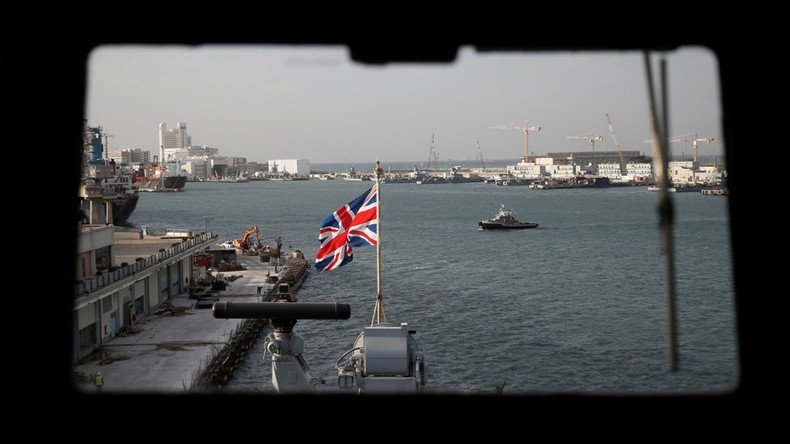‘Better navy at Dunkirk!’ Naval experts’ fury at military cost-cutting plan

The Ministry of Defence (MoD) is planning to strip the Royal Navy of two specialist landing ships, eliminating the chance of Britain being able to attack enemy held beaches, it has emerged.
HMS ‘Albion’ and ‘Bulwark’ could be taken out of service if new proposals are accepted, BBC Newsnight reports.
The cost-cutting suggestion has been slammed by naval experts and former seamen who say the measures would see Britain crippled in the event of war.
Admiral Sir Philip Jones, head of the Royal Navy, is reported to be behind the plans, but the MoD has called it “pure speculation” at this stage.
Critics and experts have insisted plans will take the RN back decades in defense and attack capability.
“We had a better functioning Royal Navy consisting of fishing and rowing boats during our retreat from Dunkirk than we do today,” UKIP activist and former Royal Navy Serviceman Ben Walker told RT UK.
“We only have 19 operational ships, yet we hear news the MoD, in their infinite wisdom, may be scrapping two more on top of foolishly mothballing HMS ‘Ocean’.
“Since their inception, troop carriers have played an extremely important part in the operational capabilities of the Royal Navy, be it the delivery of amphibious troops, offering air support, sea rescue or disaster relief. They form an integral part of any task force.”
Walker, a petty officer who served in Afghanistan, told RT UK Britain could end up reliant on other forces.
“With this news it would appear that muted moves to mothball them in order to deal with short-term financial, manpower, logistical and equipment shortages on the new carrier are being made, but at what cost to the fleet itself?
“This is another move to reduce our overall armed service personnel numbers and shoehorn our seaborne operational capabilities into a limited sphere paving the way for a move for us to be engulfed into an EU defense force forever pushed for by political classes and unelected bureaucrats.”
The retirement of HMS ‘Ocean’ was announced in 2015, 18 years after the commission of a new group of landing ships was announced in the 1997 defense review.
‘Albion’ and ‘Bulwark’ were introduced after the same review.
Operations such as the 1982 Falklands landing and the 2003 Faw Peninsula deployment in Iraq have proven the force to be vital to the fleet.
While the British defense budget is slashed in a bid to fill the giant black hole looming over the military, and savings are made across all forces, sources said the removal of the ships would free up sailors for the service’s two new aircraft carriers.
And this isn’t the only huge cut on the cards.
Under the 2015 Strategic Defense and Security Review, a blueprint was drawn up for another tough round of belt-tightening.
The funding gap, a figure which will need to be saved over ten years, is currently thought to stand at £30 million (US$39 million).
Other proposals include cutting down the number of Royal Marines by 1,000 and getting rid of two mine-hunting vessels and one survey vessel.
“This is the worst procurement decision of the past half century – that’s what the Royal Marines are being sacrificed for” one senior Royal Marine officer told the BBC.
Budgetary Decisions have been devolved to service chiefs, including Jones, despite the MoD being responsible for the funding gap.
Devaluation of sterling has been partly blamed, but money has been widely wasted on other projects.
Setting sail from the shores of fiscal reality, the government said 2017 would be the ‘Year of the Royal Navy’.
The navy is set to buy a new class of hunter-killer submarines and two new types of frigate.
However, purchases in recent years have been problematic.
The £9.75 billion fleet of hunter-killer subs was commissioned almost 20 years ago, but it took more than a decade to prepare the first three of 12.
A leaked MoD document showed the first three Astute class boats are “likely” to suffer problems in the future, the Guardian revealed, because of cost-cutting leading to corrosion issues.














